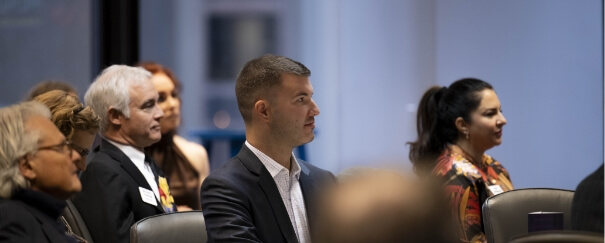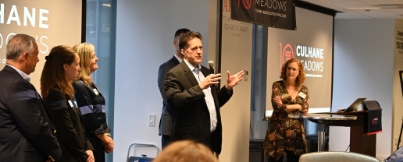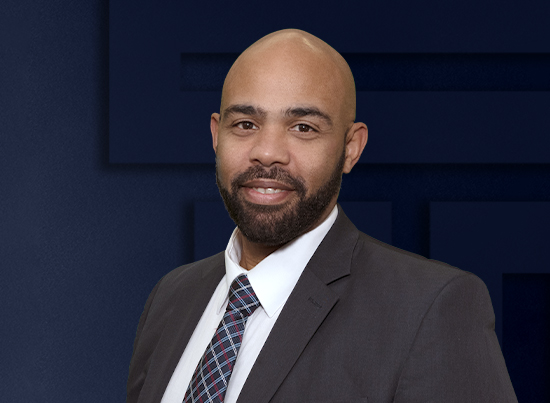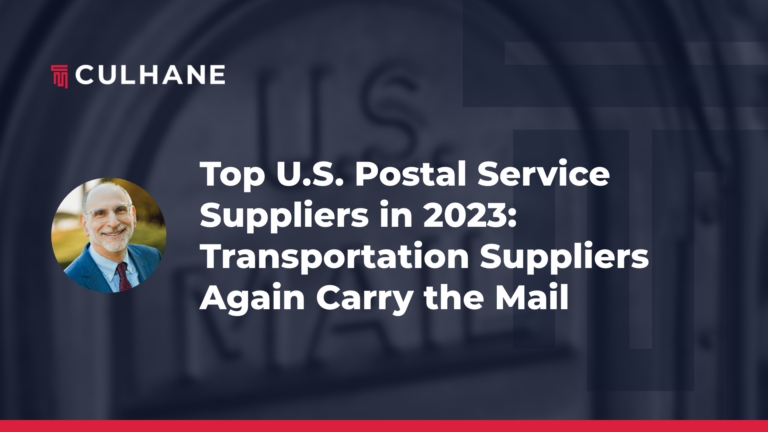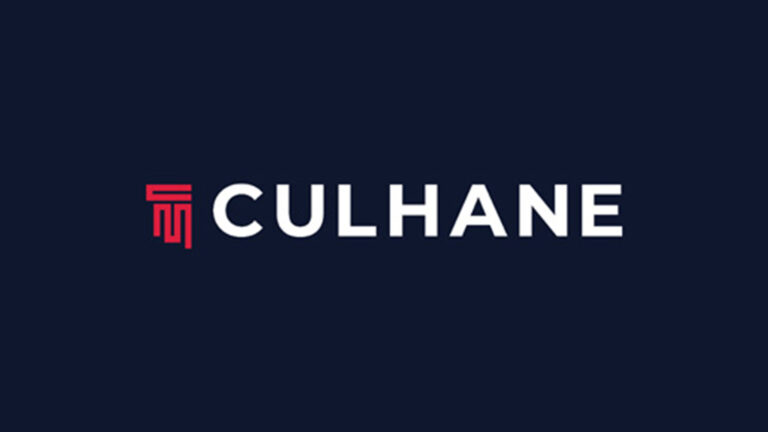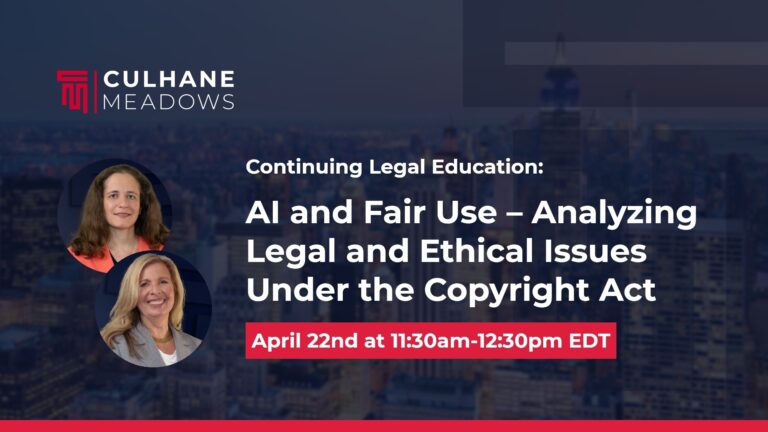Culhane Meadows’ Philadelphia partner Sekou Campbell recently authored an article published on Law360 which discusses what creatives and brands can learn from Kayne West’s fallout with Adidas.
Investments in intangible assets have driven most companies’ growth in the last decade or longer. However, those assets rely heavily on sometimes tragically flawed human beings, like Ye, formerly known as Kanye West.
The multihyphenate — producer, rapper and designer — burst onto the scene by breaking many boundaries in popular music. His song “Jesus Walks,” one of the biggest hits of his upstart career, ran directly counter to the sex, violence and drugs that often ruled the airwaves at the time.
Like Macbeth’s ambition, though, Ye’s courageous contrariness, a characteristic early in his career that bolstered his brand into a highly desired asset, has become a key facet in his unraveling.
On the one hand, Ye rejected a harmful societal norm: that a young Black musician could only gain popularity through negative stereotypes. On the other hand, more recently, Ye appears to have rejected societal norms against bigotry and antisemitism. Adidas AG, which produced Ye’s Yeezy shoes and was arguably his most lucrative business partner, cut ties with him last month.
As a disclaimer, I acknowledge and recognize that it is easy to “Monday Morning Quarterback” the groundbreaking agreements companies have entered into with Ye.
This article does not directly address the specifics of those contracts, which I have not seen. Rather, this article uses recent events involving Ye to illustrate the difficulties and risks incidental to corporate agreements with celebrities.
This article will provide some proposed solutions to those risks for both the corporate collaborator and the celebrity.
Corporations should consider due diligence and risk mitigation.
Celebrities should consider business continuity planning and the creation of brand identities separate from celebrities’ personalities.
Corporate Due Diligence and Vetting
Popularity, in general, and celebrity, in particular, attract capital. Most businesses would want to associate with a bona fide pop star who has millions of social media followers and numerous chart-topping songs and albums.
However, costly liabilities often accompany valuable assets. So, just as a company would conduct thorough due diligence on a target for acquisition, so too, must such businesses fully investigate potential collaborations with celebrities.
Potential red flags include erratic behavior, drug use — both legal and illicit, major life events such as death, divorce, mental or physical health issues, and the arrival or departure of key associates such as talent agents, managers, lawyers and assistants.
Such diligence does not come without its own risk. Because of the delicate nature of working with individuals, companies should work to ensure compliance with the Americans with Disabilities Act and Health Insurance and Portability and Accountability Act, and any other applicable privacy or antidiscrimination laws when vetting relationships with public figures.
Implementing a strong, well-written nondisclosure agreement and appropriate consents at the outset of negotiations with such celebrities should help mitigate against these compliance concerns.
Further, those considering these kinds of relationships should keep in mind the power many celebrities have over those around them. So, companies may seek to invest in professionals who do not service that celebrity’s industry in order to gain a more objective view of the proposed relationship between a celebrity and business.
Once accommodating for those challenges, however, companies should conduct a deep dive into the personal histories of their collaborators. In short, popularity alone should not drive celebrity-company relations.
Instead, businesses should consider how a celebrity endorsement impacts corporate messaging. Monitoring what the celebrity has said, how that message has changed, where it trends and how it may change in the future provide critical insights into the propriety of an agreement with a celebrity.
If companies don’t ask questions about these issues, they may find themselves with a binary choice that ultimately may cause greater-than-anticipated losses. On the other hand, if these issues are explored, they may have more ways to handle unanticipated events.
Corporate Risk Mitigation Measures
The morality clause — a mechanism often used to mitigate against the kinds of risks posed by Ye and other celebrities — gives companies the right to terminate and sometimes claw back, or at least pro rate, fees owed to a public figure.
Usually, they provide parties one of two choices: keep the celebrity and suffer the losses to the brand and reputation of the company, or terminate the relationship and suffer the financial losses from the failure to sell products endorsed by said celebrity.
While financial sanctions can often deter celebrities from bad behavior and thus avoid the binary choice, they are not perfect.
For example, prior to recent incidents, Ye had a net worth estimated to be over $1 billion. Even after many of his relationships terminated, Ye seemed undeterred despite reports saying that he lost hundreds of millions of dollars.
While no one likes to lose money, an ultra-high-net-worth individual may have less incentive to avoid objectionable behavior than other rational economic actors. So, when collaborating with ultra-high-net-worth individuals like Ye, a morality clause by itself may not sufficiently deter, and therefore mitigate against the risks posed by these kinds of endorsements.
Thus, the due diligence work done may prove useful when drafting a morality clause for someone like Ye, or to implement other risk mitigation measures. Again, Ye does not make such an evaluation easy.
For instance, it would be hard to predict that the same person who said, “George Bush doesn’t care about Black people,” would also promote a “White Lives Matter” t-shirt or peddle false narratives about the death of George Floyd later. That said, Ye has gone through very public traumas over the last few years, from the death of his mother to a public and messy divorce from Kim Kardashian, the mother of his children.
Companies are not well-equipped to deal with a counterparty’s psychological trauma. When dealing with celebrities, though, companies would be well-advised to adjust that approach. While companies cannot become caregivers to their human, as opposed to corporate, collaborators, they also cannot ignore those persons’ significant traumatic life events.
Again, while making sure to comply with privacy and antidiscrimination laws, companies may seek to implement processes and policies in their agreements to help monitor celebrities’ lives.
In addition, nonfinancial incentives centered on health, relationships and time may motivate those who may not be deterred by the loss of a revenue stream. So, rather than solely providing financial incentives in an agreement, a company could provide other bonuses that help the celebrity get more time, build better relationships, or manage their mental or physical health.
For instance, lowering the number of public appearances the celebrity is required to make based on the achievement of certain milestones may reward that person with more time.
In fact, brands like Adidas that have access to a deep bench of high performance coaches, could make certain professionals available to celebrities to help aid them in their physical and mental well-being. These nonmonetary incentives may go a long way in helping influence the behavior of potentially problematic celebrities.
Hollywood, the place where the morality clause was invented, has more recently come up with another risk mitigation measure called disgrace insurance.
These policies are relatively new and most reports state that claims are rarely made, but they do exist and can help protect against erratic celebrity behavior. Policies would require careful crafting to assure that the risks flowing from a particular celebrity’s personality are covered.
Celebrity Business Continuity Planning
In popular discussion, many have identified Ye’s mother, Donda West, as a kind of governor on his erratic behavior.
Celebrities would do well to identify critical advisers, family members or associates, like Donda West was for Ye, upon whom celebrities can rely on for advice and counsel in order to help them maintain their rationality and perspective in their very public and heavily scrutinized world.
Artists and celebrities need to consider what steps they can take to ensure that the loss of such a critical person(s) in their life would not negatively impact their business interests.
Other issues for a celebrity to handle include:
- Identifying exigencies that would trigger the celebrity to take certain protective measures;
- Developing those protective measures;
- Finding external and internal resources for the celebrity to mitigate harm; and
- Analyzing regulatory or legal risks impacted by certain exigencies.
Taking Ye as an example, he could have identified his mother as a key person in his life, and found external or internal resources to help him deal with her death or incapacity.
Because Donda West was Ye’s mother, there is no clear replacement for her, but a group of people and other resources like therapists, other family members and business associates who understand the balance brought by someone like Donda West, could have helped Ye maintain stability upon her death.This kind of succession planning, not just for celebrities, but for key people on their team, is critical to maintaining the kinds of key brand partnerships that Ye lost.
Separating a Celebrity From Their Brand Identity
Again, given the size of Ye’s brands, it seems advisable to separate the brand’s identity from Ye’s personality.By way of comparison, the Jordan Brand, while still heavily associated with Michael Jordan — who retired from basketball nearly 20 years ago — is associated with a strong list of elite athletes and a slew of National Collegiate Athletic Association Division I schools.
Adidas’ Yeezy brand was associated, on the other hand, far more heavily with a single celebrity. To be fair, it seems that Adidas did try to attract others to wear Yeezy-branded apparel and shoes, but the brand was still far more closely aligned to Ye for their agreement to survive his comments.
Dispersing the risk across other celebrities would help mitigate the cost of a single celebrity’s actions.
Similarly, Elon Musk is a far more controversial figure than, say, Tesla Inc. or Space Exploration Technologies Corp., despite his large stakes in those companies.
Those companies have successfully established themselves as separate brands responsible for electric cars and reusable rockets rather than Elon Musk’s last tweet.
Conclusion
Both celebrities and companies must consider the sui generis roles they play when entering an endorsement deal or any other arrangement involving reputational risk.
Celebrities do not have the same controls in place as companies and thus pose greater risk for doing economically and psychologically irrational things.
Companies would be well-advised to do a thorough investigation of the celebrity they enter into a deal with and to monitor and maintain healthy relationships with that celebrity throughout the engagement.
Download PDF of this article HERE.
About Culhane Meadows – Big Law for the New Economy®
The largest woman-owned national full-service business law firm in the U.S., Culhane Meadows fields over 70 partners in eleven major markets across the country. Uniquely structured, the firm’s Disruptive Law® business model gives attorneys greater work-life flexibility while delivering outstanding, partner-level legal services to major corporations and emerging companies across industry sectors more efficiently and cost-effectively than conventional law firms. Clients enjoy exceptional and highly-efficient legal services provided exclusively by partner-level attorneys with significant experience and training from large law firms or in-house legal departments of respected corporations. U.S. News & World Report has named Culhane Meadows among the country’s “Best Law Firms” in its 2014 through 2023 rankings and many of the firm’s partners are regularly recognized in Chambers, Super Lawyers, Best Lawyers and Martindale-Hubbell Peer Reviews.
The foregoing content is for informational purposes only and should not be relied upon as legal advice. Federal, state, and local laws can change rapidly and, therefore, this content may become obsolete or outdated. Please consult with an attorney of your choice to ensure you obtain the most current and accurate counsel about your particular situation.



